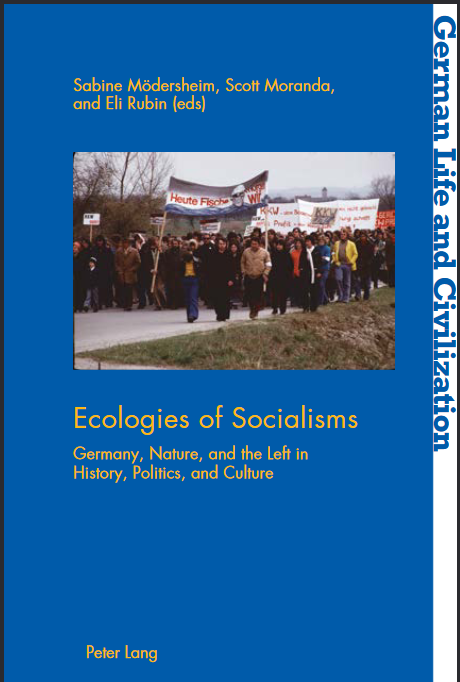موضوعات
آموزش و پرورش
ادبیات و زبان
پزشکی، دندانپزشکی و داروسازی
تاریخ و جغرافیا
داستان و رمان
دیگر
دین و فلسفه
روانشناسی
ریاضیات و آمار
سلامتی، تناسب اندام و رژیم غذایی
شیمی و پلیمر
علوم اجتماعی و حقوق
علوم زیستی و بیوتکنولوژی
فیزیک و نجوم
کامپیوتر و اینترنت
کتابهای کودکان و داستان
کسب و کار و اقتصاد
کشاورزی و دامپزشکی و غذا
معماری
مهندسی و فناوری
هنر و تئاتر
محصولات
Ecologies of Socialisms - Original PDF
نویسندگان: خلاصه: Eli Rubin and Scott Moranda Introduction Is Germany the “Greenest nation” as Frank Uekötter has provocatively asked?1 Forget the Berlin Wall, forget the Cold War, World War II, the Nazis, the Holocaust, the Kaiserreich, and forget the storied history of the Social Democratic Party – the SPD. Germany is now the nation of separated trash, solar panels and wind power. The only Wende people talk about now, in relation to Germany, is the Energiewende. And perhaps, that is part of the point. The Energiewende provides for a national identity that generates warm, positive press and seemingly avoids the more divisive and troubling aspects of past markers of Germanness. Even if the reality of the “greenest nation” is more complicated, it is undeniable that Germany has been at the center of the global history of environmentalism. Scientific conservation had deep roots among the forest- ers, urban planners, and other technical experts of Wilhelmine Germany who had outsized influence on Progressive reformers in the United States and British civil servants across their Empire.2 German-speakers also shaped Romanticism, ecology, and notions of holistic interconnectedness, most importantly in the figure of Alexander von Humboldt, whose Kosmos had a global influence.آیا کتاب مورد نظر هنوز بر روی سایت قرار نگرفته است؟ جای نگرانی نیست! کافی است بر روی گزینه سفارش کتاب کلیک کرده و درخواست خود را ثبت کنید. در کمتر از چند ساعت کتاب شما را آماده خواهیم کرد.
